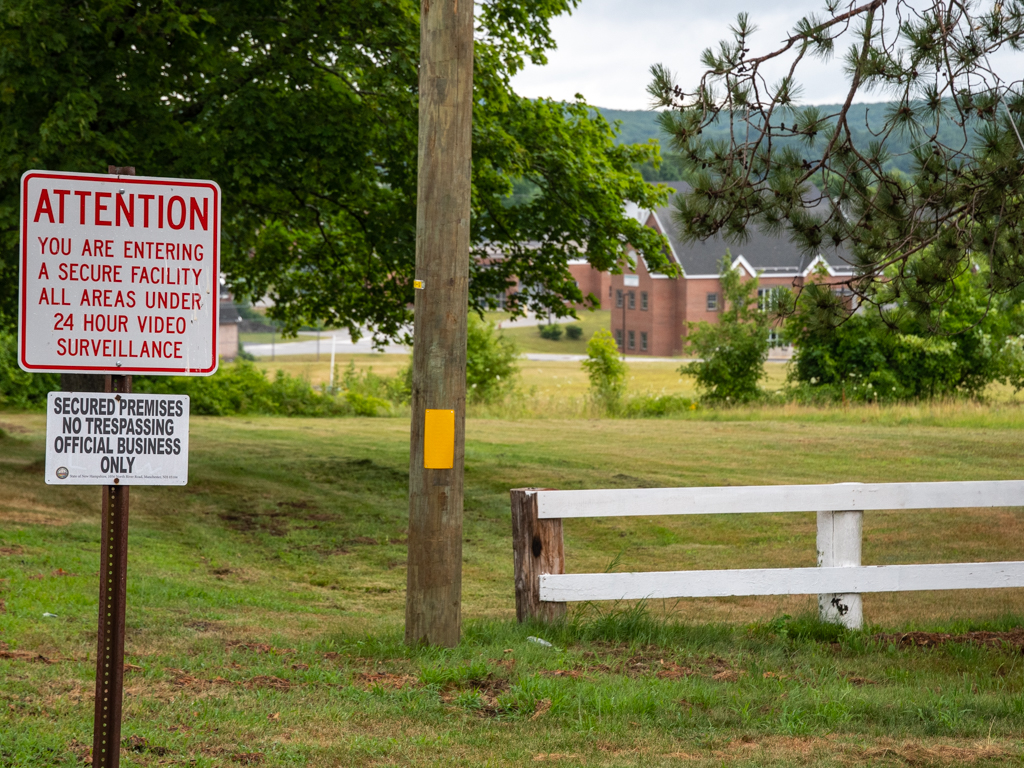By DAMIEN FISHER, InDepthNH.org
Hundreds of abuse victims will get their days in court now that Rockingham Superior Court Judge Andrew Schulman has denied the state’s motions to dismiss all of the Sununu Youth Detention Center lawsuits.
“This ruling not only vindicates our clients’ rights but, by recognizing that the state owes a fiduciary duty—the highest duty in the law—to every child it takes into custody, it also establishes a framework that will help ensure the safety of children in New Hampshire’s child protection system in the future,” victim attorneys David Vicinanzo and Rus Rilee said in a statement.
Vicinanzo and Rilee represent more than 1,200 victims who claim they were physically and sexually abused at the now shuttered YDC, a scandal the attorneys say is the worst in state history. The two lawyers blame Attorney General John Formella for trying to get their lawsuits thrown out of court.
“While claiming to care about child abuse victims, Attorney General Formella, with the help of his outside lawyers at Verrill Dana, has been quietly trying to summarily dismiss every single victim’s case without giving them a chance to prove their claims in court. That effort has failed. Our clients now have the right to have their claims for damages heard in court in front of a jury, and we couldn’t be happier for them,” Rilee and Vicinanzo said.
Trials are expected to start early next year and could potentially tie the state up in court for close to a decade.
Michael Garrity, spokesman for Formella, countered that Schulman’s order is not the end of the state’s effort to dismiss some of the claims. Schulman did dismiss some of the complaints, and put a limit on the surviving complaints, according to Garrity.
Schulman’s order also sets out the legal parameters for the proceedings. Attorneys with the New Hampshire Department of Justice will have more opportunities to get some of the claims thrown out of court.
“Using the analysis laid out in the Court’s latest order, the parties will have an opportunity for further briefing on individual cases, and the court will need to make case by case determinations, based on short form complaints and motions to dismiss, as to whether each individual case can move forward,” Garrity said.
Schulman acknowledged in his order that his ruling is “less helpful than it appears.” This is due to the unique nature of the proceedings where instead of individual complaints from each of the 1,200 plaintiffs, the court is using one “master complaint” that encompasses allegations in common to nearly all of the victims. This has never been done in a New Hampshire courtroom.
“For better or worse, and this judge believes it is the latter, the parties and the court decided to eschew the last 900 years of practice, in which individual cases are decided on concrete facts, one case at a time, allowing for the slow accretion of precedent. Instead, the court now scrutinizes a
Master Complaint containing generic allegations that are common to all plaintiffs represented by lead plaintiff’s counsel, which is to say all but a handful of plaintiffs,” Schulman wrote.
The real work to see if the lawsuits can go forward will begin once each plaintiff brings their own complaint to court, Schulman wrote.
Vicinanzo told InDepthNH.org the real victory for the victims is found in Schulman’s decision to allow complaints based on negligence and breach of fiduciary duty to go forward, as well as the decision limiting the state’s sovereign immunity defense. Schulman also blocked the state’s attempt to get the cases dismissed on grounds that the victims filed their lawsuits past the statute of limitations.
“So, all the attempts to knock out all the cases on sovereign immunity grounds and statute of limitations grounds have failed; and we are celebrating,” Vicinanzo said.
New Hampshire has been trying for years to avoid going to trial in these civil lawsuits. Last year, the legislature approved a $100 million settlement fund for victims to try and keep cases out of court. However, that fund is nearly all spoken for despite handling relatively few claims.
A handful of cases have so far been settled using the fund, but there are currently 92 more claims filed that are pending which, if approved, could wipe out most of the money.
“If you look at the amount of claims filed, the gross amount of all the claims sought already for 92 claims, it’s $82 million,” fund administrator John Broderick testified in front of the legislative Fiscal Committee last week.
“You can do the math,” he said.





